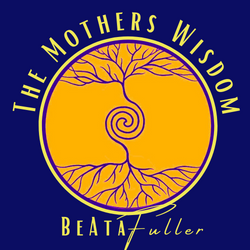"Why?" The most important question you’ll ever ask.
We humans do everything for a reason, but we’re also great at hiding the truth even from ourselves, and it’s costing a lot of pain, stress and time.
I saw a post in a teacher group. A class was asked to write about their day for homework. The picture was of one child’s answer, scribbled in uneven letters, something like “Today I helped humans summarise documents, write emails and make decisions”.
The teacher wrote “obviously AI” in big red letters under the child’s handwriting.
I could feel the charge in the situation. A child reluctantly, mindlessly completing a task; an exasperated teacher marking homework when they’d rather be doing something else; the child receiving their homework back with big red marks shouting they did it wrong.
Can you feel all the emotion in this?
Whatever your thoughts on the topic, if you imagine yourself in either role - the child or the teacher - the experience is not pleasant.
Yet it can be so different if just one question is asked: “Why?”
Why? Can be applied on a few levels here (I’ll talk about just two) and can totally change the experience, of teaching, of learning, of everything in life.
Firstly: “Why this particular task?”
And then “Why did the child do it in a half-hearted way?”
The first question makes all the difference to how the homework is assessed.
Both questions allow an opportunity to have a more satisfactory and pleasant experience next time.
When you ask: “Why this task?” you’re clearly defining the purpose
which can then be communicated, and might change the parameters of what’s considered a “correct” or "satisfactory" answer.
If the purpose was to practice writing (forming letters with pen on paper), then there’s nothing wrong with what the child produced. If that’s the purpose, then why can’t they write about something else? And why is it not OK to copy something that popped up on a screen?
Or was the purpose to learn the importance of reflecting on the day? An introduction to journaling?
Or was it to form coherent sentences?
Or to gather thoughts and communicate them clearly?
Then it’s a whole different thing, and different assessment criteria.
Most people set tasks without clearly understanding why. Reasons like “because it’s in the curriculum”, “it’s what we’ve always done”, “I think it’s important” are lame and will get lame results.
Unless you know “Why?” you’re setting the task and how you expect it to be carried out, and communicate this clearly, you will get crossed lines and unsatisfactory results as each person interprets it differently. (Just ask anyone who’s renovated a kitchen without specifying where they want the benches, cupboards and power points and why.)
The “Why?” defines what’s important in the task, and what can be changed at will. It defines the boundaries and where there is freedom to play within. (In this example, does the task need to be written or can it be voice-recorded? Does it have to be about the child’s day?)
If they know the important elements while given freedom to play and express creatively, any human is more likely to engage.
Which brings me to the second “Why?” important to ask in this situation.
Why is this child so disconnected from this task?
And if they’re so disconnected, why did they even bother to do it?
Become that child for a moment. What could they be thinking in their 8-year-old mind? Are they able to understand the importance of this? Could this have meaning in their 8-year-old life?
This is important.
Any task done to avoid getting in trouble is never going to result in learning, no matter what it was designed to teach.
Was the task presented in a way that gives context and meaning? If not, if it was given to someone as a thing to tick off on a to-do list, then that’s exactly what you can expect to get back.
“Why are we doing this?” is probably the most common questions students and employees ask. As leaders, teachers, facilitators, we need to be able to answer it.
Learning is the result of meaningful experiences. It doesn’t stop when we leave the school grounds.
Are the people you’re working with (whether students or employees) learning what you want them to learn?
Or are they learning how to keep you off their back?
And if you’re not getting the result you want, the first question to ask is “Why?”
PS Simon Sinek's "Start with Why" is a great and recommended read. It may lead you to question why you do what you do. Once you know this, it's the motivator that both inspires and gets you through the tough times.
I write about timeless education. Education that never goes out of date. Education that prepares young people for the future, no matter how it unfolds.
The questions I love to ask is: "If you were to design education from scratch, how would it look and what would be important to include?
The 7 Seeds of Success®️ model is rooted in learning the foundations that underpin everything else. Subscribe, follow and reach out so we can learn with and from each other.


